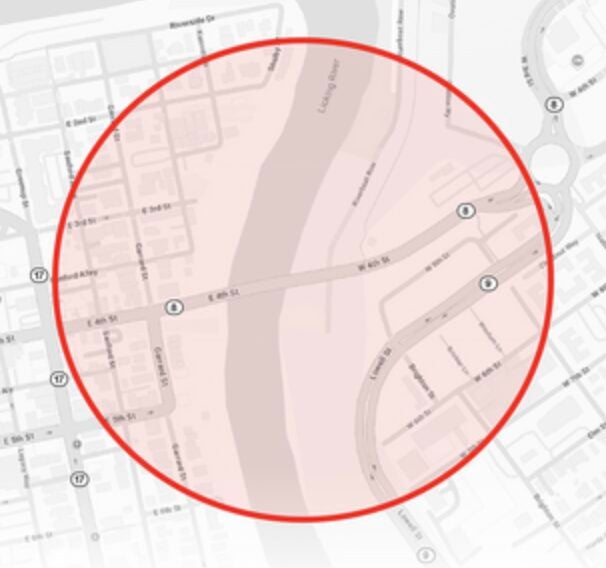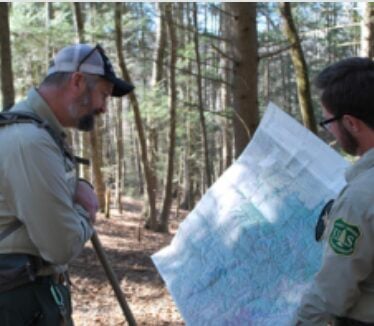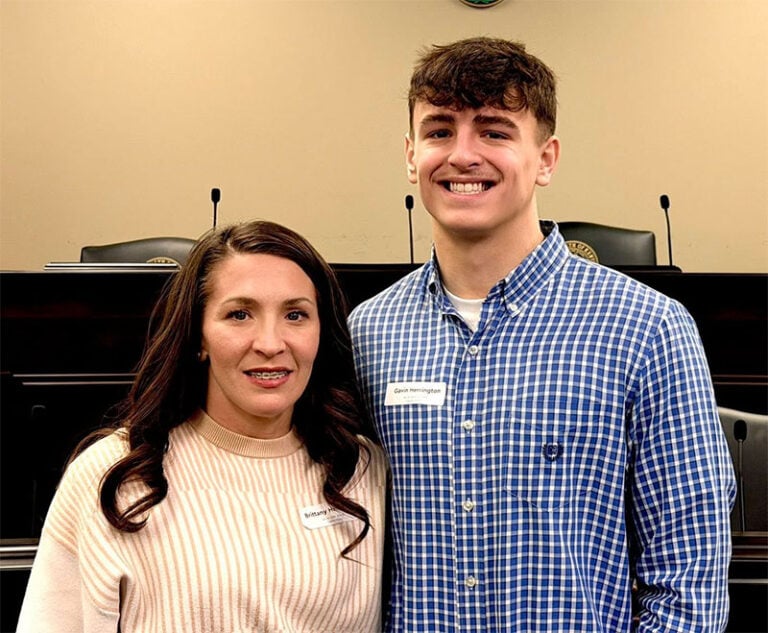By Paul A. Tenkotte, PhD
Special to NKyTribune
Today, as in the past, it sometimes feels that finding politicians who base their careers on the principle of the rule of law rather than popularity is as rare as finding a diamond in a coal mine. There are exceptions, of course. One was Stanley Matthews (1824–1889), a longtime lawyer, justice, and Republican politician.

Born in Cincinnati, Ohio on July 21, 1824, Thomas Stanley Matthews was the son of Thomas J. and Isabella Brown Matthews. The oldest child of his father’s second marriage, Thomas Stanley Matthews spent his early years in Lexington, Kentucky, where his father was a professor of mathematics at Transylvania University. In 1832 the family moved back to Cincinnati, where Professor Matthews was appointed president of Woodward High School. (“Stanley Matthews,” Cincinnati Commercial Tribune, March 23, 1889; Clare Cushman, ed., The Supreme Court Justices Illustrated Biographies, 1789–2012, 3rd ed., Thousand Oaks CA: CQ Press, 2013, pp. 203-206).
In 1840 Stanley (as he preferred to be called in his adulthood) was admitted to the junior year at Kenyon College in Ohio. There he met future US President Rutherford B. Hayes. After graduation, Matthews studied law in Cincinnati, but since Ohio required attorneys to be twenty-one years of age to practice, Stanley moved to Columbia, Tennessee, where he became a lawyer. There, in 1843, he married Mary Ann “Minnie” Black. In 1844 he returned to Cincinnati and began practicing law shortly thereafter. In 1849 he was one of the founders of the Literary Club of Cincinnati.
Matthews’ principles were strongly anti-slavery. He became editor of the abolitionist newspaper, the Cincinnati Herald, following in the footsteps of its former editor, noted abolitionist Gamaliel Bailey. Matthews further benefited from the friendship of Salmon P. Chase, also an abolitionist, and later Secretary of the Treasury under President Abraham Lincoln. Stanley Matthews’ early political career included serving as a senator in the Ohio General Assembly (1856–1858).

Stanley Matthews’s commitment to the rule of law was his guiding principle, even when that law contradicted his own principles. For example, in 1858 President James Buchanan appointed Matthews as US Attorney for the Southern District of Ohio. Although personally against slavery, Matthews respected the fact that the Federal Fugitive Slave Act of 1850 was the law of the land. In 1859, Matthews “successfully prosecuted newsman W. B. Connelly for violating” the act by “helping two slaves escape. The reporter was popular, and the law was unpopular, but Buchanan’s Justice Department was firmly committed to enforcing it. In Matthews’s defense, even the leader of the local underground railroad understood his dilemma” (Cushman, p. 204).
During the Civil War, along with Rutherford B. Hayes, Matthews volunteered for the Twenty-third Ohio Infantry. Later, he was promoted to colonel of the Fifty-first Ohio Volunteers. In 1863 he resigned from the Union Army and was elected as a judge of the Superior Court of Cincinnati.
Another example of Matthews’s respect for the rule of law occurred in 1869. Although he had drafted the Presbyterian Church’s “formal condemnation of slavery at its 1864 General Assembly,” Matthews resigned as a Presbyterian elder in 1869 when he agreed to be counsel for the Cincinnati Board of Education in an unpopular case entitled, Minor v. Board of Education. The board of education had terminated scripture reading in Cincinnati public schools. Since the Protestant (King James) version of the Bible was used in public schools, Catholic parents objected, so the clearest path forward to the board appeared to be simply ending the practice. Matthews represented the board in its decision. This and other matters led to the defeat of Matthews for the US House of Representatives in 1876. In the following year, however, the Ohio General Assembly appointed him to replace the unexpired term of US Senator John Sherman, who had resigned to become Secretary of the Treasury.
In late 1880, President Hayes appointed Matthews to a vacancy on the Supreme Court of the United States (SCOTUS) caused by the retirement of Justice Noah Swayne. Since Hayes’s presidency was ending, and the US Senate had not acted further in the matter, Matthews’s term essentially expired. To remedy the matter, President James A. Garfield renominated Matthews as a permanent justice of SCOTUS. His hearing before the US Senate was contentious, due to some of his unpopular stances in the past as well as his serving as an attorney for railroad magnate Jay Gould.
As a Justice of SCOTUS, Matthews greatest contribution occurred when he wrote the opinion for Yick Wo v. Hopkins in 1886. Yick Wo immigrated to California from China in 1861, and successfully operated a laundry in San Francisco. In 1880, the city passed a new ordinance requiring all laundries to “pass inspection by the city’s firefighter and the Sanitation Department and be approved by the Board of Supervisors to receive a license to operate.” Of the hundreds of laundries in the city owned by Chinese and Whites alike, “All but one of the white shops had obtained business permits. Even though they all passed inspections by city firefighters and health bureaus, none of the Chinese laundromats had obtained such permits. More than 150 of them continued to operate, and they were all arrested and jailed by the San Francisco Police Department” (Yick Wo v. Hopkins, A Gift to All Americans,” 人物, 推荐 , August 21, 2022, https://usdandelion.com/archives/7618).
After his arrest in 1885, Yick Wo sued Sheriff Peter Hopkins, and the case worked its way up to SCOTUS. There, it was combined with another case from California, Wo Lee v. Hopkins. SCOTUS ruled unanimously in favor of Yick Wo and the Chinese launderers. Stanley Matthews was asked to write the unanimous opinion of the court. In it, Matthews argued that the:

“petitioners have complied with every requisite deemed by the law, or by the public officers charged with its administration, necessary for the protection of neighboring property from fire, or as a precaution against injury to the public health. No reason whatever, except the will of the supervisors, is assigned why they should not be permitted to carry on, in the accustomed manner, their harmless and useful occupation, on which they depend for a livelihood; and while this consent of the supervisors is withheld from them, and from 200 others who have also petitioned, all of whom happen to be Chinese subjects, 80 others, not Chinese subjects, are permitted to carry on the same business under similar conditions. The fact of this discrimination is admitted. No reason for it is shown, and the conclusion cannot be resisted that no reason for it exists except hostility to the race and nationality to which the petitioners belong, and which, in the eye of the law, is not justified. The discrimination is therefore illegal, and the public administration which enforces it is a denial of the equal protection of the laws, and a violation of the fourteenth amendment of the constitution” (Yick Wo v. Hopkins, Sheriff, etc., Legal Information Institute, Cornell Law School, https://www.law.cornell.edu/supremecourt/text/118/356)
Justice Matthews’s wife Minnie died in 1885, and he remarried in 1887. In 1888, Matthews fell ill, dying in Washington, DC on March 22, 1889. Matthews was buried in Cincinnati’s Spring Grove Cemetery. The Cincinnati Commercial Tribune eulogized him as follows:
“He has been long enough on the bench to vindicate the wise choice of those who placed him there, and his eminence as a Judge was not more clear than the irreproachable integrity of his judicial character. It is, taking it all in all, a splendid record that he has made—a history that is not without its lights and shade—and that invites the criticism of those who are too tame or conceited or stupid to have ever looked upon more than one side of a great question—history that is not that of a dull brook that has babbled idly through soft meadows, but of a torrent fed by the springs and the storms on the mountains and that has bent its own picturesque way through the rocks” (“The Death of Stanley Matthews,” Cincinnati Commercial Tribune, March 23, 1889, p. 4)
Paul A. Tenkotte, PhD is Editor of the “Our Rich History” weekly series and Professor of History at Northern Kentucky University (NKU). He can be contacted at tenkottep@nku.edu. Tenkotte also serves as Director of the ORVILLE Project (Ohio River Valley Innovation Library and Learning Enrichment).

















